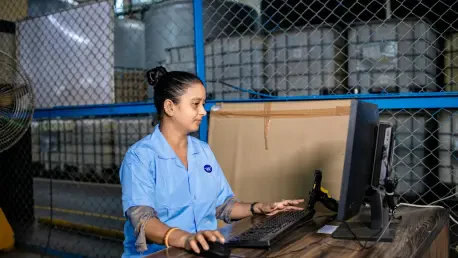In recent years, artificial intelligence has become an increasingly prominent tool for businesses aiming to streamline operations and enhance productivity. With its ability to manage and automate complex tasks, many are exploring the feasibility of AI entirely replacing traditional business workflows. Startups like Heron are leading the charge by harnessing AI to automate processes in sectors such as business lending, equipment finance, and insurance. Recently, Heron attracted significant attention by securing $16 million in funding, demonstrating the growing interest in AI-driven solutions among investors. As this technology evolves, questions arise regarding its capacity to fully automate workflows traditionally managed by humans. Artificial intelligence offers considerable promise for automating repetitive tasks, freeing human resources to focus on decision-making and problem-solving activities requiring nuanced judgment. By implementing AI systems, businesses can experience significant improvements in efficiency and accuracy, potentially transforming how industries operate. Instead of merely automating processes, Heron’s approach involves ensuring that AI complements human intervention when encountering complex scenarios. This collaboration not only enhances reliability but underscores the need for a balanced integration of AI and human expertise in workflow automation. The company has demonstrated the capacity of AI through its achievements with various clients, reducing decision-making time and significantly streamlining operations.
Expanding AI’s Role in Business Processes
Heron’s success in integrating AI into business workflows reflects a broader trend toward embracing technology in traditional sectors. With over 150 customers and processing hundreds of thousands of documents weekly, Heron epitomizes the potential of AI in reshaping business processes. One noteworthy example involves a lender that managed to cut decision-making time by 60% through AI enhancements, showcasing the potential for accelerated processing. An insurer also benefited from the technology, automating over 80% of its triage submissions. These advancements suggest a powerful AI impact on otherwise labor-intensive sectors. The adaptability of AI systems allows for modifications that accommodate the evolving needs of diverse industries, establishing a novel architecture within established workflows. As AI systems mature, their capabilities extend beyond mere automation, encompassing tasks traditionally necessitating human intervention. The pivot toward document workflow automation in 2023 marked a significant milestone for Heron, buoyed by innovations in large language models. This progression not only fueled revenue growth but emphasized AI’s versatility in handling high-volume tasks efficiently. By optimizing workflows and reducing operational burdens, AI signifies a paradigm shift for traditional industries, urging businesses to reconsider how they allocate resources. Startups like Heron demonstrate the potential for AI to perform intricate operations while maintaining reliability, showcasing the underpinning of an AI-driven future across numerous sectors.
Balancing Automation with Human Expertise
Heron’s strategy moves beyond the conventional scope of automation, advocating for a synergistic interplay between AI and human input to guarantee accuracy and reliability. The approach prioritizes identifying scenarios that benefit from human intuition while allowing AI to oversee mundane processes that do not require such discernment. This balanced model addresses inherent limitations within AI systems, ensuring processes are handled appropriately without sacrificing quality or accountability. Heron’s mission signifies an evolution in workflow automation, emphasizing a structure where human oversight assists AI, fostering a robust and adaptable environment within the business landscape. The reliance on AI for executing standard operations allows human resources to engage with complex problems, maximizing organizational effectiveness. Investment in AI technology prompts businesses to review their operational strategies carefully, weighing potential gains against risks associated with complete automation. A substantial factor lies in understanding the boundary where automation becomes most effective. Difficulties in forecasting every possible scenario underscore the necessity of preserving human oversight in scenarios prone to unpredictability. As AI evolves, Heron’s perspective remains to refine their AI capabilities to suffice customer requirements while maintaining reliability. This balanced stance highlights AI as an essential tool capable of revolutionizing operational frameworks when implemented thoughtfully around intrinsic human insight.
Transformative Potential Across Industries
With fresh capital injection, Heron’s trajectory encompasses expanding its reach into insurance, equipment finance, SMB lending, and beyond, uncovering prospects for innovation across varied domains. The impetus behind this expansion lies in cultivating AI systems capable of addressing intricate demands posed by diverse business sectors, ultimately facilitating the transition toward comprehensively automated workflows. This transformation signals potential for disruptive changes within traditional frameworks, augmenting productivity while navigating the challenges accompanying AI adoption. Firms championing AI, like Heron, recognize the advantages drawn from thoroughly understanding AI boundaries that enable seamless stakeholder integration in processes requiring precision. Crucially, Heron’s methodologies align with its commitment to revolutionizing industries, recognizing AI’s transformative potential when wisely implemented alongside human discretion. Future developments foresee expanded AI applications within unexplored sectors, urging exploration in adopting AI across boundaries. The capacity to innovate remains prevalent, revealing directional growth as AI continues to redefine legacy systems. Precise, targeted applications of AI signify an important evolution for businesses intent on remaining competitive. Heron’s dedication underscores the vitality of strategically implementing AI systems that pave pathways for progress across sectors traditionally reliant on manual processing.
Envisioning the Path Forward
In the last few years, the use of artificial intelligence (AI) has surged as businesses strive to optimize operations and boost productivity. AI’s capacity to handle and automate complex tasks has spurred many to investigate whether it could potentially replace traditional business workflows entirely. Companies like Heron are at the forefront, leveraging AI to automate sectors such as business lending, equipment finance, and insurance. Heron’s recent success in securing $16 million in funding highlights a growing investor interest in AI-driven solutions. This growing interest raises questions about AI’s potential to fully automate workflows that were once human-led. AI shows great promise in automating routine tasks, allowing human resources to focus on decision-making and nuanced problem-solving. By adopting AI systems, businesses can achieve better efficiency and accuracy, potentially reshaping industry operations. Instead of merely automating, Heron ensures that AI complements human input during complex scenarios. This approach enhances reliability and stresses the importance of integrating both AI and human expertise. Heron has proven its capability by reducing decision times for clients, thus streamlining operations significantly.









